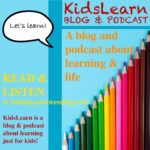
One of the things that my book club students often notice in children’s books is the Dead or Missing Parent Syndrome. In one class, we read:
- Roald Dahl’s Danny, Champion of the World: Dead mother
- Cornelia Funke’s Dragon Rider: Missing parents
- Frances Hodgson Burnett’s Secret Garden: Dead parents
- Diana Wynne Jones’s Charmed Life: Dead parents
- Kenneth Oppel’s Airborn: Dead father
- Kacen Callender’s King and the Dragonfly: Dead brother
- and just to top it off, Laura Amy Schlitz’s Amber & Clay: dead mother, dead friend, and dead narrator!
That’s a whole lot of death and misery! It seems like dead or missing family members are everywhere in kids’ books. What gives?
Reason #1: Agency
A major reason why authors want parents out of the picture is in order to give kid characters agency. Agency is the ability for kids to make their own decisions and act on their own.
Why do kid characters need agency? Because, frankly, authors are afraid you’d be bored if fiction were more like real life. Take Harry Potter. Harry only has to do the things he does because his parents were killed before the book even starts. If his parents had lived, they would have stowed Harry somewhere safe and dealt with Voldemort themselves. So Harry Potter would have been about a wizard kid living in a comfortable, safe place, learning theoretical magic while his parents were out saving the world.
Boring!
Reason #2: Character development

Quintessence by Jess Redman doesn’t feature a main character with dead or missing parents (though, to be truthful, two of the other kids in the book do have missing parents). But because the main character’s parents are present and loving, the main character has to lie to them in order to have agency. She sneaks out at night and lies about what her astronomy club is doing.
Kids’ books usually want to feature kids with good character qualities, right? So in order to give agency to a child character with a protective family, the writer has to make the parents overprotective and the kid a liar. Ouch. Luckily, it’s a great book and the author deals with it well. But it adds another whole layer of storyline to the book that another author might want to avoid.
Reason #3: Learning through empathy

Finally, a lot of time the dead, dying, or missing loved ones are in the story by design. Fiction helps us learn about ourselves by developing empathy for people who don’t exist. When we go through a tragic situation with a fictional character, we can learn how to deal with difficult situations in our own lives, even though the overwhelming majority of children don’t lose their parents, thank goodness.
That’s why books for kids are full of fun and adventure, for sure, but also pain, loss, fear, anxiety, and all those other difficult emotions we all have to learn to process. Fiction allows us to feel those emotions in a safe way and learn ways to deal with them when they arise in our real lives.
Try to stick with those tough books
I know that some young people avoid books with “sad” content because they don’t want to be sad. And that’s understandable. But most books that tackle tough subjects provide support for young readers to learn to process emotions and deal with the variety of challenges that might arise in their own lives.
